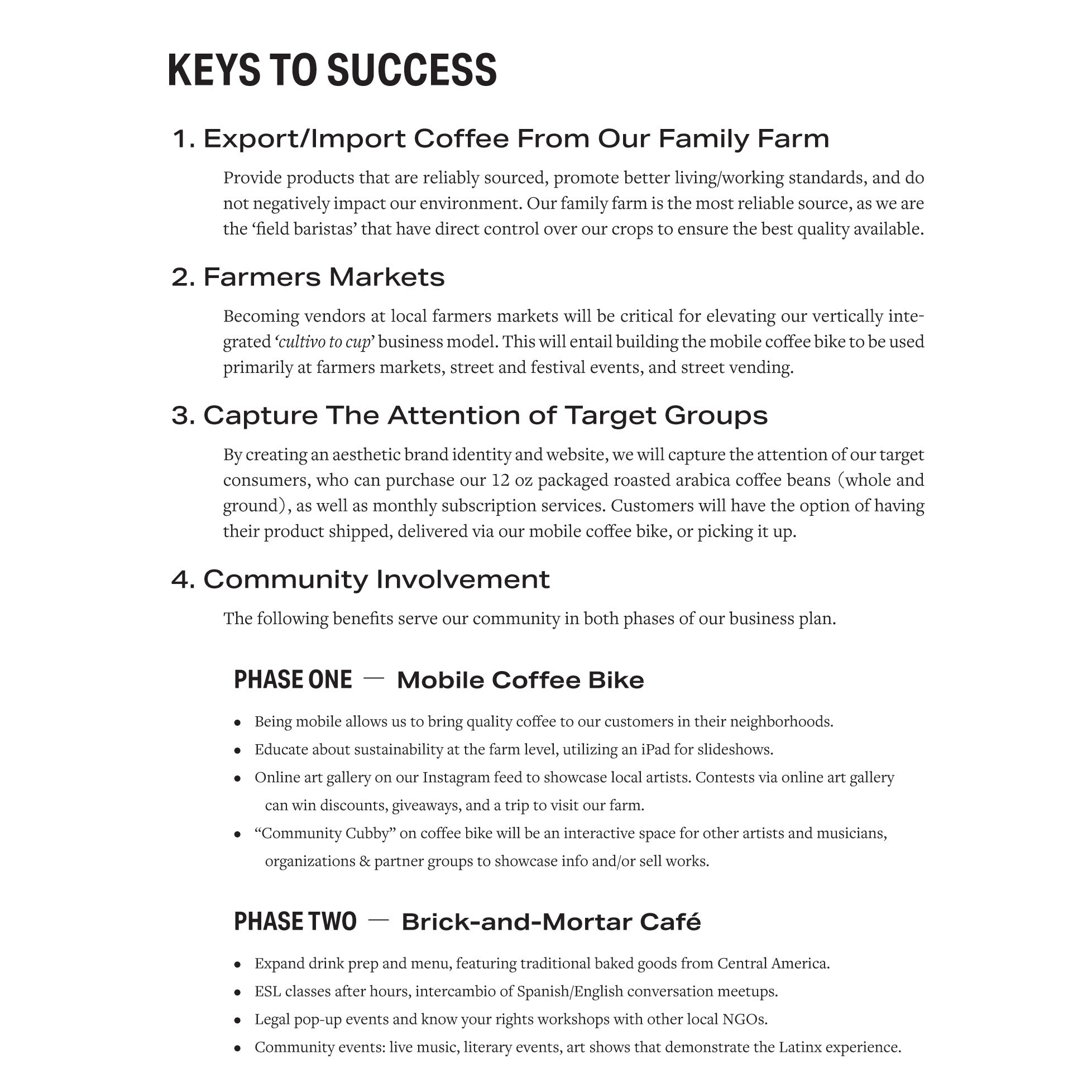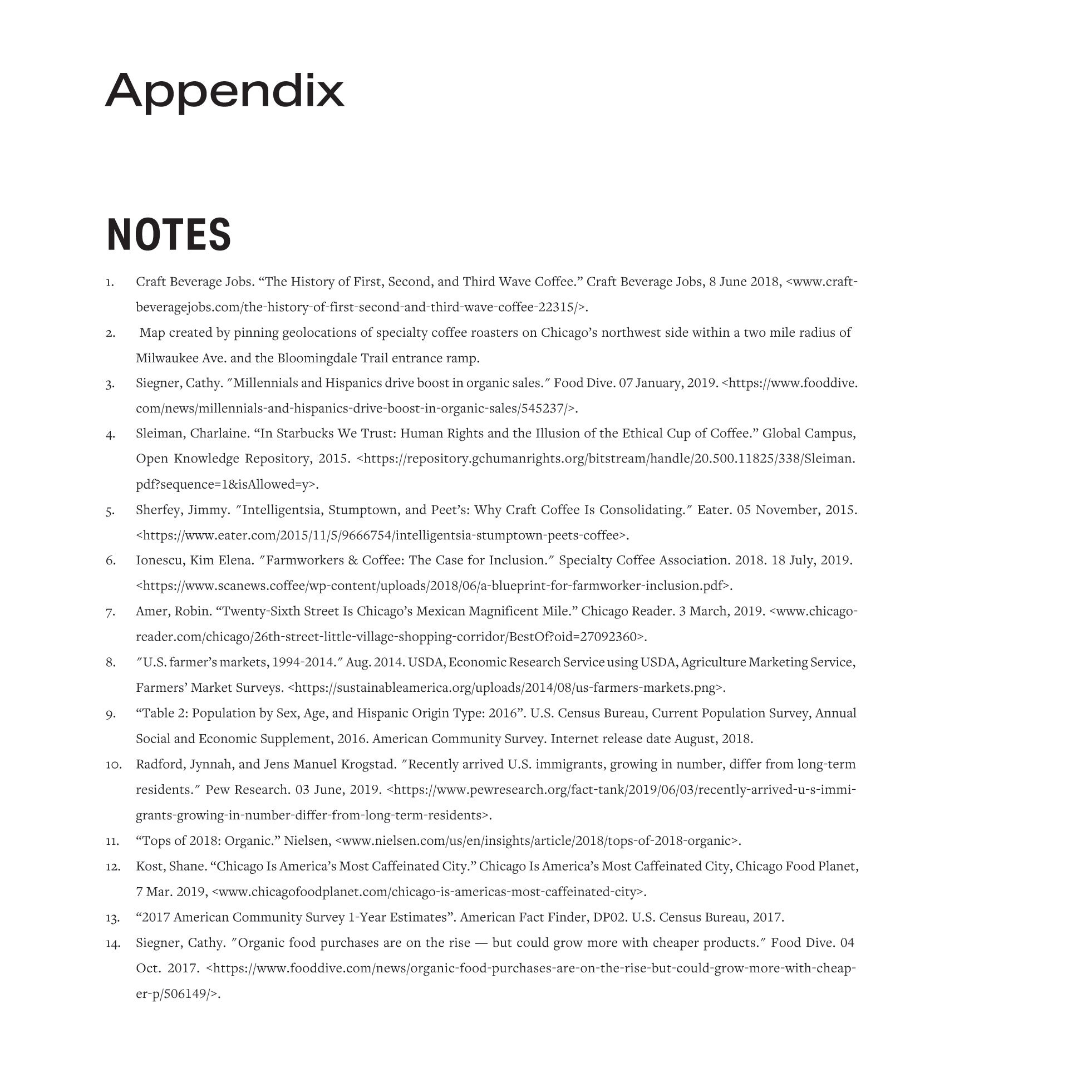Our Business Plan (4/5)
(4/5) The idea of “success” is different for everyone—for us it is the ability to live life with dignity, autonomy and sustainably as coffee farmers. We not only strive to see this in our own families but also in the families in our communities, on both sides of the border.
With full transparency we share our intentions and hopes of how our coffee business will grow. We hope our business model can fund community programs & collaborations with community groups in a brick-and-mortar café five years out from now.
Above we’re also publishing some of our own research* we’ve conducted on coffee roasters, specific to the northwest side of Chicago. We focused on this area because it’s been our home for 22 years combined and have had to say goodbye to many businesses, schools, mental health clinics, neighbors, family and friends.
According to U.S. Census data, between 2000 - 2014, about 19,200 Hispanic** residents relocated out of Logan Square, a 35.6% decrease. During the same period of time, the white population in the neighborhood increased by about 10,340 residents, a 47.6 percent increase. As Chicago has been experiencing a "Coffee Boom" in recent years, we think it’s important to be aware and critical of these possible connections specific to this area.
*Our research was conducted during the summer of 2019 and may be outdated due to recent closings caused by Covid-19, openings, or changes in ownership.
**The 2020 Census form now offers three Hispanic origin categories as ethnicities, along with “Another Hispanic, Latino, or Spanish origin,” with the option to write in a specific origin. Previous forms have not.
Live Text:
Keys to Success:
1. Export/Import Coffee From Our Family Farm
Provide products that are reliably sourced, promote better living/working standards, and do not negatively impact our environment. Our family farm is the most reliable source, as we are the ‘field baristas’ that have direct control over our crops to ensure the best quality available.
2. Farmers Markets
Becoming vendors at local farmers markets will be critical for elevating our vertically integrated ‘cultivo to cup’ business model. This will entail building the mobile coffee-bike to be used primarily at farmers markets, street and festival events, and street vending.
3. Capture The Attention of Target Groups
By creating an aesthetic brand identity and website, we will capture the attention of our target consumers, who can purchase our packaged 12 oz roasted arabica coffee beans (whole and ground), as well as monthly subscription services. Customers will have the option of having their product shipped, delivered via our mobile coffee-bike, or picking it up.
4. Community Involvement
The following benefits serve our immediate community in both phases of our business plan.
Phase One - Mobile Coffee-Bike
• Being mobile allows us to bring quality coffee to our customers in their neighborhoods.
• Educate about sustainability at the farm level, utilizing an iPad for slideshows.
• Online art gallery on our Instagram feed to showcase local artists. Contests via online art gallery can win discounts, giveaways, trip to visit our farm.
• “Community Cubby” on coffee bike will be an interactive space for other artists and musicians, organizations & partner groups to showcase info and/or sell works.
Phase Two - Brick-and-Mortar Café
• Expand drink prep and menu, featuring traditional baked goods from Central America.
• ESL classes after hours, intercambio of Spanish/English conversation meetups.
• Legal pop-up events and know your rights workshops with other local NGOs.
• Community events: live music, literary events, art shows that demonstrate the Latinx experience.
5. Diversity, Representing Those We Aim to Serve
There is a vast lack of diversity in ownership in specialty coffee roasters in Chicago.
• Within a two-mile radius of our operation site, 3 out of 12 roasters are co-owned by women, and one founder is a person of color. (footnote 2)
• Owners share similar stories of building their businesses as individuals: ‘self built’, ‘self exploration’, ‘do-it-yourself’ that lacks promotion of farmers and/or producers.
• Third-wave cafés tend to be located in expensive, trendy, and “developed” neighborhoods.
• Our origin story is rooted in generations of coffee farming making producers our fundamental concern. As a woman and Latino immigrant owned business, our participation will add diversity to the coffee industry in Chicago. Also, the hiring practices commitment we pledge in phase two will provide jobs to those in the community we aim to serve in West Side neighborhoods along with bilingual staff. Our presence will also increase access to healthier options by being a mobile service.
• A space to be utilized as a resource for the existing population within the community, and not as a destination point that causes displacement of existing community members and residents.




